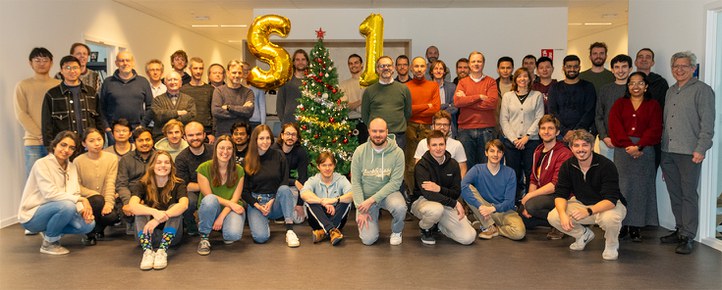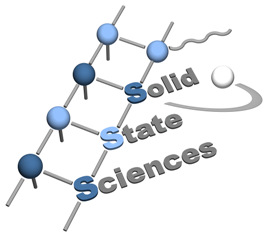About us
Our department contributes highly to the physics education at UGent, while also aiming for excellent research on condensed matter and applied physics.
Mission statement
The Department of Solid State Sciences wants to excel in fundamental condensed matter research and physics education to contribute to both technological and societal development.
The department of Solid State Sciences of Ghent University is part of the faculty of Sciences. The department has activities in the broad field of Solid State Sciences related to deposition and (surface) analysis of thin films, to magnetron deposition, conformal coating of nanomaterials, the detection and microscopic characterization of paramagnetic defects in solids by means of Electron Paramagnetic Resonance (EPR) and Electron Nuclear DOuble Resonance (ENDOR), the study of defects in semiconductors, i.e. physical properties, identification, quantification of analytical techniques, and the synthesis and characterisation of luminescent materials.
History and general information
The Department of Solid State Sciences has emerged from the former Laboratory of Crystallography and Study of the Solid State, also called the Laboratory Dekeyser, after its founder Prof. Willy Dekeyser. Under his guidance in the 50-70's of the previous century, the laboratory has given an importance boost to the development of solid state physics at the UGent and in Flanders, leading to well-known important scientific evolutions and numerous applications in modern society.
The department WE04 still has an important position among the 14 departments of the Faculty of Sciences with respect to education, fundamental research, applied research and service to the community. Its 60-70 collaborators contribute to numerous scientific research projects, within as well as outside the academic world. The department has a wide range of modern (often large-scale) research infrastructure and a longstanding tradition of collaboration with industry without neglecting fundamental solid state research though. The physics research has gradually and naturally been extended towards other (applied) sciences with a prominent role for the Department of Chemistry (WE06).
At present the department counts 6 research groups mainly active in the synthesis and study of functional thin layers and nanostructures, and the optical and magnetic characterization of defects.
- COCOON focuses on all levels of thin film devices, from deposition to their different applications after extensive characterization.
- DiSC studies defects in semiconductors with the aid of FT-IR, DLTS, EPR and ENDOR.
- DRAFT is specialized in the experimental study and modelling of magnetron deposition.
- DyNaMat focuses on research on the dynamics of functional (magnetic) nanomaterials.
- LumiLab mainly investigates new materials for photoluminescence.

